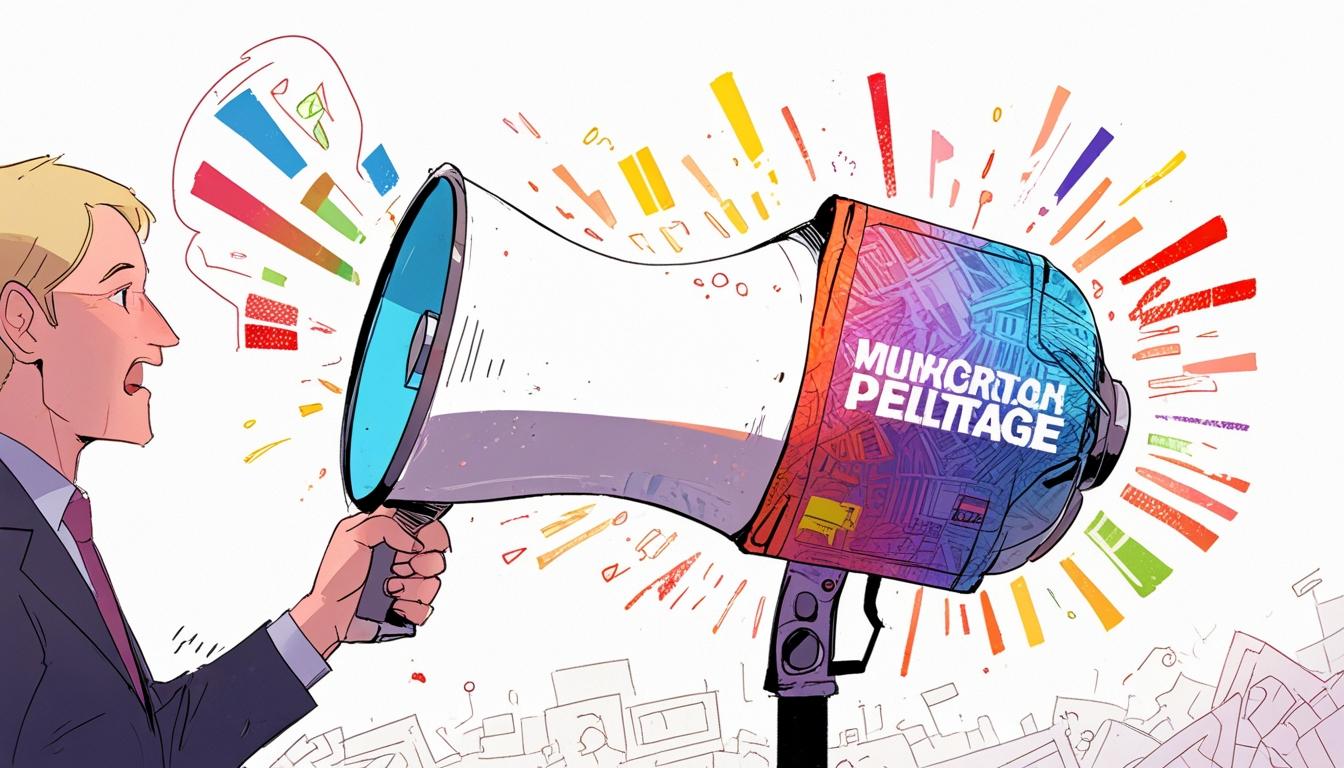In the lead-up to the 2025 Australian federal election, several notable developments across political, media, legal, and entertainment sectors have drawn public attention.
In political campaigning, Queensland Senate candidate Harry Fong of Clive Palmer’s Trumpet of Patriots party has been identified as responsible for a surge of political text messages received by Australians. These messages, featuring nationalist slogans and promises such as home loan plans, have led to widespread complaints. The Guardian Australia reports that Fong, described by his party as a "highly respected barrister," maintains a long-standing connection with Palmer dating back to the 1970s.
In an unusual cross-continental political endorsement, the American reality TV figure Joe Exotic—known as the Tiger King—has publicly urged Australian Prime Minister Anthony Albanese to advocate for his release from a US prison. Speaking to SBS News, although Albanese appeared amused by the plea, he treated it as a lighthearted episode within the broader election campaign.
On the advertising front, the Labor Party has reportedly outspent the Liberal Party by a two-to-one margin in digital advertising from late March to late April, investing nearly $5 million in Google and Meta platforms. Sky News Australia notes that this expenditure has supported a variety of provocative, meme-heavy advertisements targeting Opposition Leader Peter Dutton, portraying him in various negative roles and accusing him of undermining Medicare—claims some critics have labelled misleading.
The media and broadcasting landscape has seen notable shifts as well. Foxtel, recently acquired by UK-based sports streaming service DAZN, has cut around 100 staff members, primarily from marketing and engineering departments, as part of a transition toward a more digital-focused operation. The Sydney Morning Herald reports that despite these job losses, Foxtel intends to retain its streaming aggregation platform, Hubbl.
Within legal news, the controversy involving journalist Antoinette Lattouf and Nine Entertainment continues to evolve. The Australian reports that a pro-Israel lobby group has accused Nine of contempt for allegedly violating court orders designed to protect their members’ identities in its reporting. Nine’s legal team disputes the accusations, requesting further clarification on the breaches.
Meanwhile, the defamation case between ex-soldier Ben Roberts-Smith and investigative journalist Nick McKenzie has seen new developments. Sky News Australia explains that Roberts-Smith’s legal team is pushing for a retrial based on new evidence, including a secret recording and text messages, claiming a miscarriage of justice. Legal expert Chris Merritt suggests the legal risk has shifted significantly onto McKenzie, who is expected to face cross-examination.
In broadcasting governance, ABC Chair Kim Williams acknowledged a “stern learning experience” following Media Watch’s exposure of his repeated interventions to secure regional radio interviews for comedian Sandy Gutman, also known as Austen Tayshus, during his tour. The Australian Financial Review highlights criticism of this action as undermining the ABC’s editorial independence.
In television, former “Farmer Wants a Wife” contestant Ellen Dunger revealed on TikTok that the show pays a modest $80 per day for filming, with 40% of that sum withheld by the Seven network until after the show airs. Sky News Australia covered these revelations following the premiere of the 2025 season.
Journalistic trends continue to evolve, with Crikey reporting that the Substack platform has attracted a growing number of Australian writers, from politicians like Malcolm Turnbull to prominent journalists. Substack offers an alternative to traditional media by allowing writers to build subscriber relationships directly, sidestepping advertising-driven algorithms.
Within radio, the Australian Radio Network (ARN) has commenced another round of redundancies as part of an organisational restructuring aimed at streamlining and offshoring certain departments, including finance and technology. Mediaweek notes that final numbers remain contingent upon ongoing discussions.
In social media technology, Meta has launched a standalone AI application powered by its Llama 4 model to compete with ChatGPT. The new app features image generation, editing capabilities, voice functions, and a “discover” feed showcasing user interactions. This community-centric approach distinguishes it from competitors such as OpenAI’s ChatGPT and Google’s Gemini.
Retail sector insights reveal changing Australian consumer behaviour in response to financial pressures. Coles CEO Leah Weckert described a shift toward budget-conscious shopping, with consumers cutting back on luxury items like alcohol, meat, and bottled water, while increasingly using loyalty points. Despite these trends, Coles reported a 3.4% increase in sales to $10.4 billion for the March quarter, according to The Australian.
Finally, the annual Screen Forever conference will take place on the Gold Coast, as reported by TV Tonight. This three-day event, organised by Screen Producers Australia, serves as a key forum for industry professionals to network, discuss trends, and foster creative collaborations. Producer Tony Ayres, known for works such as Clickbait, Fires, and Glitch, has underscored the value of in-person meetings for building professional connections within the screen production industry.
These developments collectively illustrate a dynamic period in Australian politics, media, and cultural life as the country approaches its 2025 federal election.
Source: Noah Wire Services
